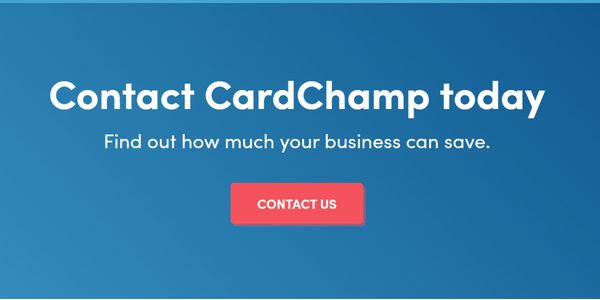
Chargebacks often feel like a slap to the face for business owners. The business does its best to produce a quality product or service, yet the consumer decides what was received did not deliver as promised and files a dispute with their card issuer.
This is the process of how most chargebacks occur between merchants and customers.
Definition of a Chargeback
The meaning of a chargeback is when a card issuer disputes the transaction made at a merchant location. The dispute is more often than not initiated by the customer, however, occasionally the financial institution will create the dispute based on untypical transactional behavior. A chargeback is not a void or refunded transaction.
What happens with a chargeback?
After the customer disputes the transaction with the card issuer, the chargeback process is in full effect for the merchant.
The amount of the transaction is deducted from the business’ bank account and held in escrow. The merchant also incurs what is known as a Chargeback Fee by the credit card processing company. Most Chargeback Fees are between $15.00 and $25.00 depending on which merchant services provider the business utilizes.
Businesses are typically notified about chargebacks by receiving a letter in the mail or receiving an email of the transaction being disputed. The letter provides details on the transaction, along with contact information for the Chargeback Department. Every chargeback has a deadline for a required response or else the merchant will forfeit their opportunity of fighting the chargeback.
CardChamp customers benefit from enabling features with their merchant account to be notified of chargebacks via email and on their online Cardpointe dashboard.
Three Tips to Avoid Chargebacks
Accept EMV Cards on Card Present Transactions.
If you swipe a customer’s EMV card, the customer can dispute the transaction and your business will not be able to win this type of chargeback. It is important for all businesses to have the ability to accept EMV or chip cards by inserting them into the card reader.
Refund the Same Card from the Original Transaction.
When a customer requests a refund of a transaction, do so by completing the refund on the original card the transaction was run with. Never refund in cash or check. Refunding in cash gives an easy way for someone to say they never received a refund and then they can dispute the transaction with their card issuer.
Complete your Due Diligence on Unusual Transactions.
If something is out of the ordinary with a customer making a purchase, take the time to do some due diligence. For example, if your business has an average ticket of $100 and a first time customer wants to purchase $10,000 worth of inventory, request additional information. Asking for a copy of a photo ID such as a Driver’s License or Passport, along with a mobile number could protect you from losing out on potential stolen merchandise.
Three Tips to Win Chargebacks
Confirm your Mailing Address is Correct.
You may receive mail at a different location than your physical business address. Confirm your merchant services provider has the correct mailing address on file for all correspondence, including chargeback letters.
Enable Electronic Notifications
Some merchant service providers have an option to be notified electronically at no additional cost if a chargeback were to occur. Ask your provider if they have such a feature and enable it, if available.
Respond within a Timely Manner
This goes without saying, but respond asap to a chargeback letter. The more time you have to work with the chargeback team, the better your chance of winning the disputed transaction.
Two Additional Takeaways
Even if your business does win the case involving a disputed transaction, it will still be responsible for paying the Chargeback Fee. This is a standard in the payments industry.
No matter who your credit card processor is, when it comes to chargebacks, this is the one instance when your provider is not the bad guy. It is not their fault if you have a chargeback. The chargeback process is standard with most merchant service providers. Unfortunately for businesses, financial institutions have the chargeback policies set up to protect the consumer.
CardChamp’s goal is to help small and mid-size businesses by providing the best solutions in credit card processing. Customers choose CardChamp because of our elite security standards, great customer support, and low transparent pricing. If you know of a business CardChamp can help, please have them contact us today.


